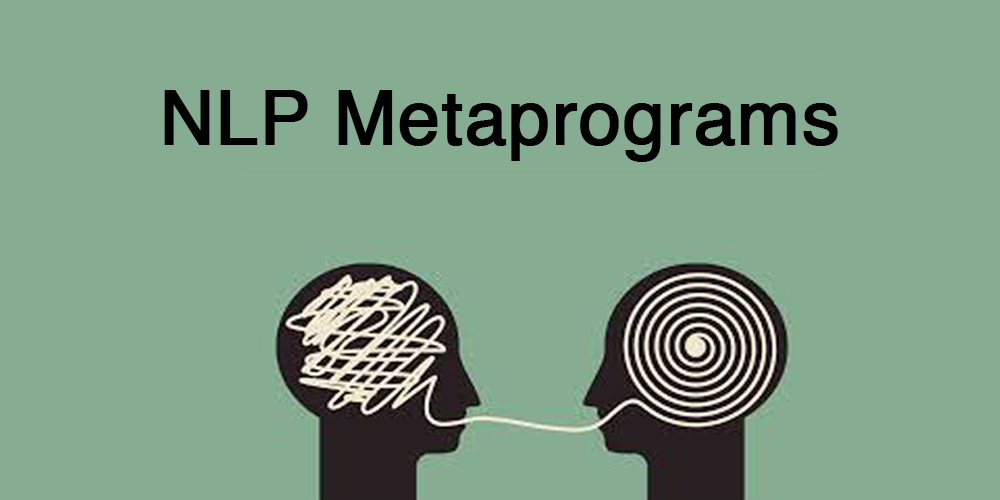Metaprograms and the Components of Our Personality
Greetings, villains and manipulators. This is Stalilingus. Today, we’re going to talk about metaprograms, or what makes up our personality. You can read the article about personality types above.
Let’s get started!
Metaprograms are certain “patterns” (unconscious automatisms) of a person’s thinking. In other words, they’re like “routes” along which the mind travels, and as a result, they influence all communication, problem-solving, reflection, and even enjoyment.
But why do we need to know about metaprograms and how people think? What opportunities does this open up for us?
In short, it’s so we can manage these “routes” in people’s minds.
Let’s get acquainted with some of the most interesting metaprograms (there are about 51 in total).
Polar Responders
You’ve probably met people who always argue with you. Even when they agree, they start with, “No, well of course…”
They just can’t say it any other way, because that’s how their brain is wired—or rather, it’s their brain’s “operating system.” Despite their habit of arguing, they’re actually pretty easy to manage because of this very habit. Just start arguing the opposite of what you want from them, and stop once they say what you need to hear. 😉
If you want a laugh (and I love to), when your opponent once again starts their answer with “No, but…”, just point out that they always start with a denial. Their reaction is predictable—they’ll start denying it. Your job is to keep looking at them intently with a questioning look, as if to say, “And what’s this, then?”
Among polar responders, there are also craftier types. Their favorite speech pattern is “Yes, but…”
They seem to agree with you, but it’s just for show. You can handle them the same way as the first type—by arguing the opposite of your goal—though you probably won’t get a laugh out of it. Apparently, they’ve already heard that joke in their life. 😉
Process-Oriented and Result-Oriented People
Much has been written about these folks, since the “process” and “result” metaprograms strongly influence both motivation and a person’s overall destiny.
Result-oriented people make excellent leaders, thanks to their ability to plan and control with a focus on outcomes. They don’t care how it’s done—they’re goal-oriented and will be flexible and resourceful in choosing methods.
Process-oriented people, on the other hand, truly know how to enjoy life. Unlike result-oriented people, they don’t check off “flags” and “pluses” on their achievement lists. They don’t even understand how someone can be motivated by a “checkmark”—for them, it’s all about the intensity of experiences, the range of sensations, being in the flow, and letting the amazing happen…
Of course, they have no idea what amazing thing will happen )) so in business, they need to be managed and guided.
Naturally, each of these metaprograms requires its own motivation system—the first group needs results, the second group cares about the journey itself. As for where that journey leads, they don’t really care. ))
Global vs. Detail-Oriented Thinkers
Some people love details, nuances, and specifics down to the tiniest elements.
I can’t stand them!!! ))) They’ll drown you in those damn details, and you’ll never see the big picture! Normal people think globally, perceive the world as a whole… and don’t care if someone starts dozing off in the process. ))
As you’ve probably guessed, global thinkers have a hard time finding common ground with detail-oriented people. And as you might expect, this also relates to professional inclinations, motivation styles, and ways to connect with others.
Can You Change Your Metaprograms?
I’ve only listed a few metaprograms above, but that’s already enough to start noticing just how different people are from each other. …Although, some of you might be interested to see who you have something in common with. ;)))
This raises a question. If metaprograms so strongly limit our thinking (or rather, if we have a ton of new opportunities to think differently))), how can we master other metaprograms? Is it possible to completely change your personality, or will your established metaprogram profile define your nature for life?
The good news is that we can develop the habit of thinking in other metaprograms that weren’t natural to us before. It’s a skill, just like counting, writing, or speaking another language. It can be trained.
The bad news (though I’m sure intelligence officers wouldn’t agree))) is that the basic metaprograms formed from birth—what we call “personality”—will always feel most natural. In everyday situations (when you don’t need to find unconventional solutions or adapt to someone else’s thinking style), you’ll default to your usual way of thinking.
A Solution for James Bond
The difference in metaprograms, by the way, is the reason we like to ask for advice when we can’t find a solution ourselves. If a solution is in your “blind spot,” it’s not necessarily because you’re “afraid to admit it” or have some other issue—it might just be a limitation of your metaprograms, which can be solved by getting an alternative “point of view” from someone else. The more different they are from you, the better.
But if you don’t want to always ask for advice, and instead prefer to sell your advice for money ))) …Or if you just want to develop mental flexibility, learn to speak to each person in the “language of their brain,” making them feel like you understand them better than anyone else (which is true), then develop new metaprograms. More on that in future articles.
Stalilingus



